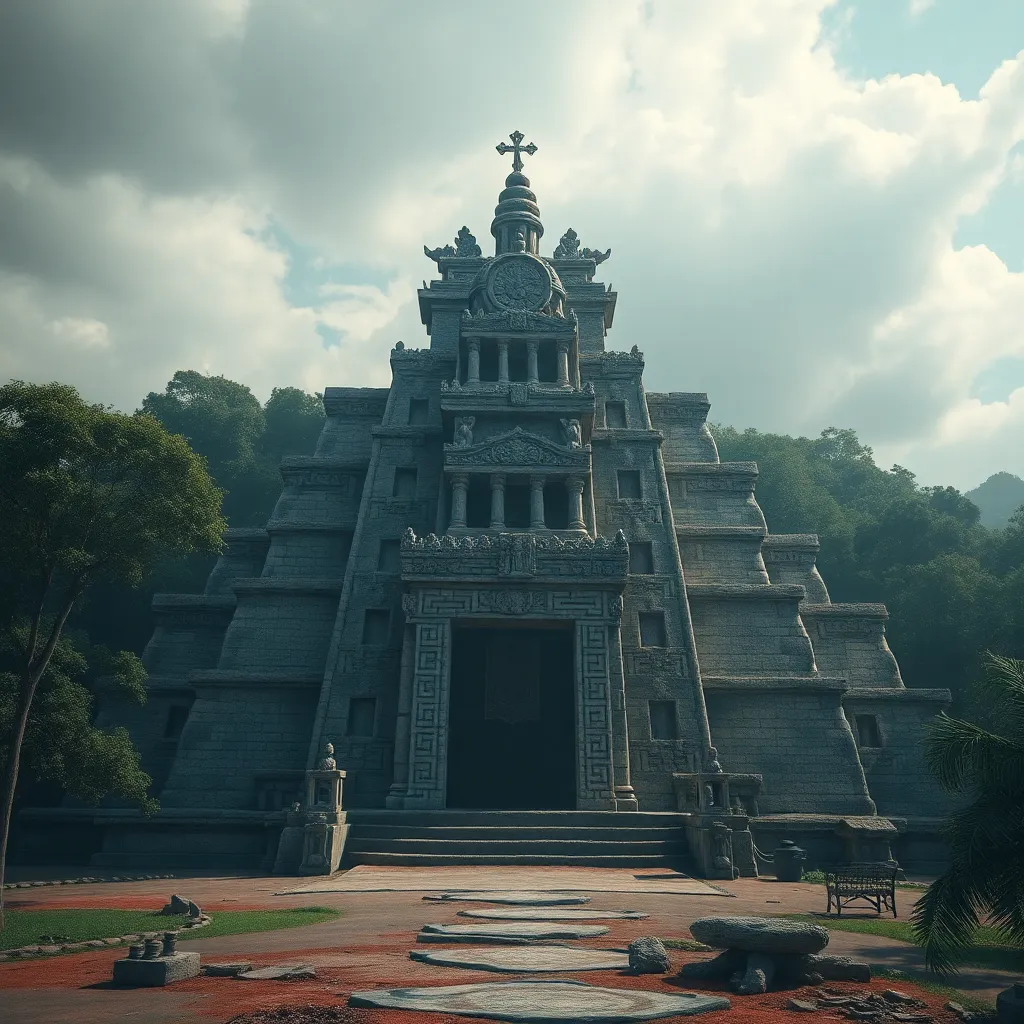The Mayan Concept of Prophecy: Itzamná’s Role in Predicting the Future
I. Introduction
The Mayan civilization, one of the most advanced and fascinating cultures of Mesoamerica, thrived between 250 and 900 AD, known for its sophisticated art, architecture, mathematics, and astronomy. The Mayans developed a rich tapestry of beliefs and practices that were deeply intertwined with their understanding of the cosmos, nature, and the divine.
Central to Mayan society was the concept of prophecy, which played a crucial role in decision-making, governance, and spiritual guidance. Prophecies were viewed as messages from the gods, providing insight into future events and the will of the divine. Itzamná, the supreme god of wisdom and knowledge, holds a pivotal position in this prophetic tradition, serving as a key figure in interpreting signs and foretelling the future.
II. Understanding Mayan Cosmology
The Mayan worldview is characterized by a profound connection between the natural and supernatural realms. The cosmos was perceived as a living entity, where celestial bodies, gods, and humans interacted in complex ways. The Mayans believed that the universe was structured in layers, including the underworld, the earthly realm, and the heavens.
In this cosmological framework, prophecy was not merely a predictive tool but a reflection of the divine order. The movements of celestial bodies, such as the sun, moon, and planets, were believed to influence earthly events and human destinies. The gods, including Itzamná, were seen as active participants in this cosmic drama, guiding humanity through signs and omens.
III. Itzamná: The Supreme God of Wisdom and Knowledge
Itzamná is one of the most revered deities in the Mayan pantheon, often depicted as an old man with a kind face, symbolizing wisdom and knowledge. He is associated with creation, the heavens, and the arts, embodying the principles of learning and enlightenment.
Historically, Itzamná’s attributes include:
- Wisdom: As a god of knowledge, Itzamná was revered for his insights and understanding.
- Prophecy: He was believed to possess the ability to foresee future events and communicate these visions to humanity.
- Creation: Itzamná is credited with the creation of the world and all living beings, thus linking him to the fundamental aspects of existence.
His mythological background is rich with stories that highlight his role as a teacher and guide, particularly in matters of prophecy and foresight, making him an essential figure in the Mayan spiritual landscape.
IV. The Mechanisms of Mayan Prophecy
Mayan priests and shamans employed various methods to predict the future, drawing on their deep understanding of the cosmos and the divine. These methods included:
- Astronomical Observations: The Mayans meticulously tracked celestial events, such as eclipses and planetary alignments, which they believed held prophetic significance.
- Calendrical Systems: The Mayan calendar, particularly the Tzolk’in and Haab’, provided a framework for understanding cycles of time and their implications for human affairs.
- Rituals and Ceremonies: Sacred rituals, including offerings and divination practices, were performed to seek guidance from Itzamná and other deities.
These practices were integral to the Mayan approach to prophecy, allowing them to interpret signs from the gods and make informed decisions based on these insights.
V. Itzamná’s Prophetic Influence in Mayan Society
Itzamná’s influence on Mayan society was profound, with numerous prophecies attributed to him guiding leaders and common people alike. Some notable examples of prophecies include:
- Seasonal Changes: Predictions regarding agricultural cycles were crucial for farming communities, ensuring successful harvests.
- Political Events: Itzamná’s prophecies often guided rulers in making critical decisions about warfare, alliances, and governance.
- Natural Disasters: The interpretation of omens related to earthquakes or droughts allowed communities to prepare and respond to potential calamities.
The impact of these prophecies was significant, as they shaped societal norms and practices, reinforcing the belief in divine guidance and the authority of priests and shamans as intermediaries between the gods and the people.
VI. The Legacy of Itzamná and Mayan Prophecies
Itzamná’s prophecies left an indelible mark on Mayan history and culture. The insights and teachings attributed to him helped shape the moral and ethical frameworks of Mayan society. Today, the legacy of Itzamná continues to resonate, with modern interpretations of Mayan beliefs emphasizing the importance of balance, harmony, and respect for the natural world.
Furthermore, the relevance of Mayan prophecies is evident in contemporary discussions around sustainability, environmental stewardship, and the interconnectedness of life, showcasing how ancient wisdom can inform modern practices.
VII. Comparative Analysis: Itzamná and Other Prophetic Figures
When comparing Itzamná to prophetic figures in other cultures, several similarities and differences emerge:
- Similarities: Like Itzamná, figures such as the Oracle of Delphi in Greek culture and various prophets in Abrahamic religions served as intermediaries between the divine and humanity, providing guidance and foresight.
- Differences: Itzamná’s prophecies were deeply tied to the cyclical nature of time and agriculture, whereas other prophetic traditions may focus more on linear historical narratives or moral teachings.
This comparative analysis highlights the universal human quest for understanding the future and the diverse ways cultures have sought divine insight.
VIII. Conclusion
In summary, Itzamná’s role in Mayan prophecy is emblematic of the civilization’s rich spiritual heritage and its emphasis on the interconnectedness of the cosmos, humanity, and the divine. The significance of prophecy in understanding Mayan culture cannot be overstated, as it served as a guiding force in shaping societal norms, governance, and community resilience.
As we reflect on the enduring legacy of Itzamná and the Mayan prophetic tradition, we recognize the value of ancient wisdom in navigating the complexities of modern life, reminding us that the pursuit of knowledge and understanding is a timeless endeavor.



